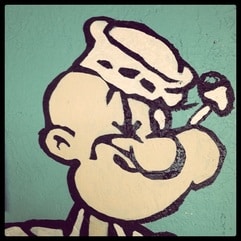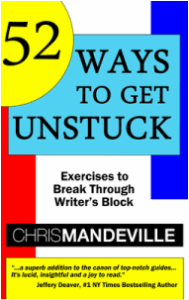Here’s the thing: I’ve been trying to be something I’m not, and it hasn’t worked out very well for me. I’ve been attempting to be a more steady-on writer. Someone who has a regular writing routine. Someone who writes every day. Someone who writes in the morning.
I thought that if I just did this, I would be a more productive writer. And a better person.
This is easy to believe, given the vast number of stories and adages about the virtues of persistence and good habits and early risers. So I tried it—I mean really tried—but despite my best efforts, I didn’t become a more productive writer. In fact, I was less productive and a lot less joyful about writing.
When I do my best work
The fact is, I’m not a slow-and-steady kind of person. I’m inclined to balk and buck at any routine. I don’t take daily vitamins because I instinctively rebel against the regularity of this requirement.
And no one has ever mistaken me for a morning person.
So I asked myself when I’ve been the most productive, both at writing as well as at non-writing things. And I realized: I’ve always worked best as a “binge-er.” I tune out the world, focus on one thing, and keep my head down until it’s done. When I’m “all in” I can accomplish amazing things. Not only am I more productive, but I produce quality results. When it comes to writing, I do my best work when I take a week and completely immerse myself in my story: no emails or phone calls, no chores, errands, or obligations. Just writing. A writing binge.
Is binge-writing really so wrong? Despite the cautionary tales and adages we’re raised on, is there anything inherently bad about excess? Does one have to have a daily routine to be successful or virtuous or productive? Do I have to be slow-and-steady to win the writing race? Is it really necessary to get up at the butt-crack of dawn to be healthy, wealthy and wise?
Trying to get up early in the morning and write a little bit every day hasn’t served me very well.
So despite cultural programming (and despite being married to a dyed-in-the-wool morning person who sincerely believes early birds are the only ones who deserve worms), I’m facing the fact that I am what I am:
I yam what I yam
 And what I yam is a binge-writer. A binge-writer with a tendency to be a night owl who drinks ridiculous amounts of coffee.
And what I yam is a binge-writer. A binge-writer with a tendency to be a night owl who drinks ridiculous amounts of coffee.
Granted I can’t arrange my life so that I can binge-write every day, and I can’t co-exist gracefully with my family and friends if I write all night and sleep all day. But most weeks I can find a way to binge-write for at least a chunk of one day, if not two or three days.
When I’m really on a roll, I can usually find a way to stay up writing all night and still manage my life.
Don’t get me wrong—I understand the wisdom of exercising the writing muscle frequently. But I’m finally ready to admit that writing a little every day just isn’t for me. I no longer buy into the belief that being a daily writer is somehow inherently better than binge-writing a couple days each week.
Embrace what works for you
If you’re a steady-on, routine-loving, every-day sort of writer, I think it’s awesome that you’ve found what works for you. But if like me you’re not, there’s no need to feel bad about it. Being productive is the key here, so figure out how and when you are the most productive, and embrace it.
Binge-writing or every-day writing—find what works for you, and use that to become a more productive writer.
Keep in mind: no matter what your routine or recipe for success, if one day it’s not working for you, try something else. Who knows, there may come a day when I try again to be an every-day, early-riser type of writer. Until then, I yam what I yam, and you can find me in the all-night internet coffee shop writing my heart out until the break of dawn. And not feeling a darn bit bad about it.
Are you a binge-er, an every-day writer, or something else? Let us know on Facebook.

 Chris Mandeville writes science fiction and fantasy, as well as nonfiction for writers. Her books include Seeds: a post-apocalyptic adventure and 52 Ways to Get Unstuck: Exercises to Break Through Writer’s Block.
Chris Mandeville writes science fiction and fantasy, as well as nonfiction for writers. Her books include Seeds: a post-apocalyptic adventure and 52 Ways to Get Unstuck: Exercises to Break Through Writer’s Block.





